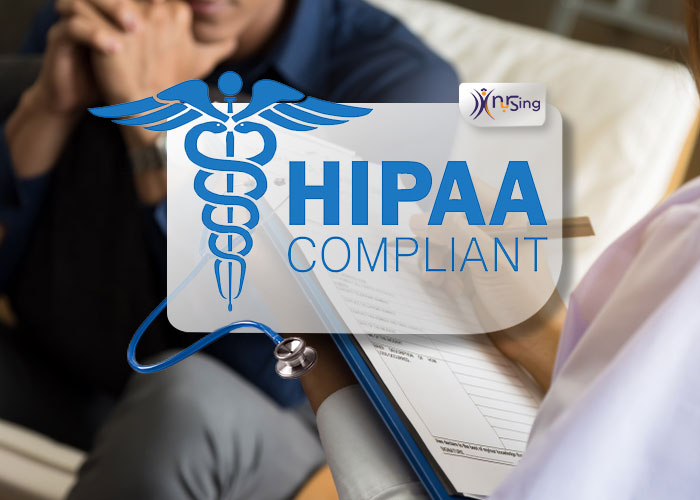HIPAA compliances secure, safeguard and protect sensitive Patient Health Information (PHI) from any foreign disclosure which can occur at any time. Any or every patient record that associates with the health condition of the patient falls under this act. This blog will cover all things one should know about HIPAA.
What is HIPPA?
Health Insurance Portability and Accountability Act (HIPAA) are a series of international standard regulatory laws that protect sensitive patient health information. Enacted in the year of 1996 by the US Congress, HIPAA has two main goals. Firstly, it allows individuals to keep their insurance when going between jobs. And, secondly, it keeps patient history and information confidential and secure. Any information that relates to patient health information is included as confidential. Thus, patient security and confidentiality are major components of HIPAA.
According to the legal provision, those who must comply with HIPAA standards are referred to as “covered entities”. Any covered entities including health care providers, health plans, and health care clearinghouse that transmits and stores health information are compelled under HIPAA. Business entities like contractors and vendors are also required to comply with HIPAA rules and regulations.
Purpose and Rules of HIPAA:
The purpose of HIPAA is to protect an individual’s privacy, enhance the security of health information, promote the portability of health insurance, and facilitate efficient administrative processes in the healthcare industry. By establishing these standards, HIPAA aims to balance between protecting patients’ rights and maintaining effective delivery of health care services.
HIPAA in general follows 4 set rules:
The privacy rule protects the type of data that is exchanged.
Security rules keep the database secure and protect it from any leakage of information.
Enforcement rule guides procedures for law enforcement, hearings, and penalties.
Finally, the HIPAA Breach Notification Rule compels healthcare providers to notify individuals in the event of a breach.
Who should know about HIPAA and why?
The HIPAA standards should be known to all healthcare facilities, healthcare professionals, and every patient that needs healthcare. It is especially important for individuals who work closely and keeps contact in day-to-day life with patients like nurses. As a nurse, you must observe HIPAA laws to protect a patient’s confidential records from illegal release. Although it is not always simple, nurses must be watchful in order to avoid breaking any restrictions.
Being knowledgeable about HIPAA standards ensures that one does not go into violation of the set rules and leak any sensitive patient health information. Covered entities must exercise caution and best practices in administrative, physical security, and technical security.
Who Benefits from HIPAA?
Patients, healthcare providers, healthcare organizations, researchers, and public health agencies all benefit from HIPAA. It creates a comprehensive framework for safeguarding patient privacy and confidentiality, fostering trust, maintaining legal compliance, and facilitating critical healthcare activities and research.
If you are looking to know more about HIPAA compliance training, work culture in patient health information, rules and regulation standards then NRS Nursing is the go-to place. We provide awareness seminars related to HIPAA as well as CPD for nurses among other services. As experts in the field of nursing career counseling, we can help you if you are at crossroads in your nursing career and need guidance. Feel free to provide your information to get a free first appointment with us from our official site at www.nrsnursing.com.




